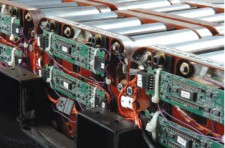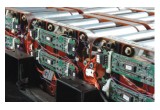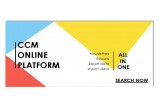
Guangzhou, China, August 23, 2016 (Newswire.com)
-
China’s Li-ion battery industry keeps booming in H1 2016 as what it was in 2015 and it has become a dark horse in the non-ferrous metal industry. Thanks to the great support from the Chinese government, China has become the biggest market of alternative vehicles in the world, according to analyst CCM.
However, Li-ion enterprises from Japan and South Korea are still dominant in the Li-ion industry despite of the rapid development from China. Some Chinese enterprises are competing with foreign enterprises in high-end products of Li-ion battery materials, while most of the Chinese enterprises are competing for the low-end products.
Dark horse in non-ferrous metal industry
The rapid development of alternative vehicles in China has brought an unprecedented opportunity for the Li-ion battery industry.
According to China Non-Ferrous Metals Industry Association, in H1 2016, the average price of lithium carbonate (industrial-grade) was USD20,067/t; lithium carbonate (battery-grade) was 24,442/t; and lithium hydroxide was USD23,084/t. Currently, lithium carbonate (battery-grade) is in tight supply with the major transaction price of about USD22,632/t.
The standing high prices of li-ion products are mostly attributed to the support from the Chinese government in alternative vehicles industry. The huge demand for Li-ion battery also drove the demand for its upstream products, such as cathode material, anode material, diaphragm, electrolyte, lithium carbonate and lithium concentrate.
In H1 2016, with the total amount of over USD10.56 billion, there are over 30 cases of mergers and acquisitions within the China Li-ion industry, including Gree acquiring Zhuhai Yinlong New Energy Co., Ltd. as we reported in July. The integrations through continuous mergers and acquisitions within the whole Li-ion industry marked that Li-ion battery industry has focused more on quality that quantity in China.
The production and sales of alternative vehicles in China were up 131.4% and 134.1% year on year in Jan.-May 2016 respectively, according to China Association of Automobile Manufacturers.
“In 2016, the mergers and acquisitions among li-ion enterprises have shared resources to form scale effect, as to better integrate the whole industry,” commented Stanley Wang, chief editor of China Li-ion Battery News, CCM.
Non-stop development
Thanks to the big hit of alternative vehicles in China, the investment on Li-ion battery skyrocketed. In 2015, the sales of alternative vehicles were 331,000 in China, accounting for one third of the global sales, according to China Association of Automobile Manufacturers. It is predicted that the sales would reach over 1 million in China.
According to China’s Ministry of Industry and Information Technology (MIIT), the total production of Li-ion batteries was 1.76 billion in Jan.-April 2016, up 14.3% YoY. 500 million Li-ion batteries were produced in April.
China Non-Ferrous Metals Industry Association predicted that the growth speed of alternative vehicles would remain over 50% in China; the demand for power batteries would reach 25.6Gwh; and the demand for lithium carbonate would increase 12,000 tonnes in 2016.
With the big hit of Li-ion battery industry, Li-ion has become a popular staple product. Just in H1 2016, 54 power battery related companies already released the plans of investment and expansion on the Li-ion battery market, with the total investment amount of about USD17.5 billion. The Goldman Sachs Group, Inc. once claimed that Li-ion may be the “new petrol” in the 21st century and it predicted that the demand for Li-ion from the alternative vehicles market would reach to over 300,000 tonnes in 2025.
Enterprises from Japan and South Korea are dominant
In the over 20 years development of Li-ion battery industry, Li-ion battery enterprises from Japan, South Korea and China have monopolized the global supply of Li-ion battery, with the global market share of over 60%, 30% and 8% respectively. That’s to say, Li-ion battery enterprises from China still have a lot to improve.
In terms of the development of Li-ion battery, enterprises from three countries have different advantages.
Japan has strong technology in Li-ion battery with advanced automation in Li-ion industry and high quality of products. However, the high cost of Li-ion products has hindered Japan’s expansion of Li-ion battery industry in the world.
South Korea has less advanced technology than Japan, but with the advantages of its giants in Li-ion battery industry, the whole industry could be developed intensively. In the past few years, South Korea battery enterprises kept constructing factories in China to lower the production cost of Li-ion battery, which helped it capture the China’s market.
Compared to Japan and South Korea, Chinese enterprises should improve much more on their technology. But in large scale production, Chinese enterprises still enjoy great advantages. With huge investment in alternative markets in China, the whole Li-ion battery industry is quite developed.
The demand of lithium carbonate would be tight in the near future. Considering that the slow process of new capacity of Li-ion, CCM predicted that there would be a shortage of 12,000 tonnes of Li-ion in China and the price would stay steady.
About CCM:
CCM is the leading market intelligence provider for China’s agriculture, chemicals, food & ingredients and life science markets. Founded in 2001, CCM offers a range of data and content solutions, from price and trade data to industry newsletters and customized market research reports. Our clients include Monsanto, DuPont, Shell, Bayer, and Syngenta. CCM is a brand of Kcomber Inc.
For more information about CCM, please visit www.cnchemicals.com or get in touch with us directly by emailing econtact@cnchemicals.com or calling +86-20-37616606.
Source: CCM, CCM Online Platform, China's Ministry of Industry and Infor
Share:


